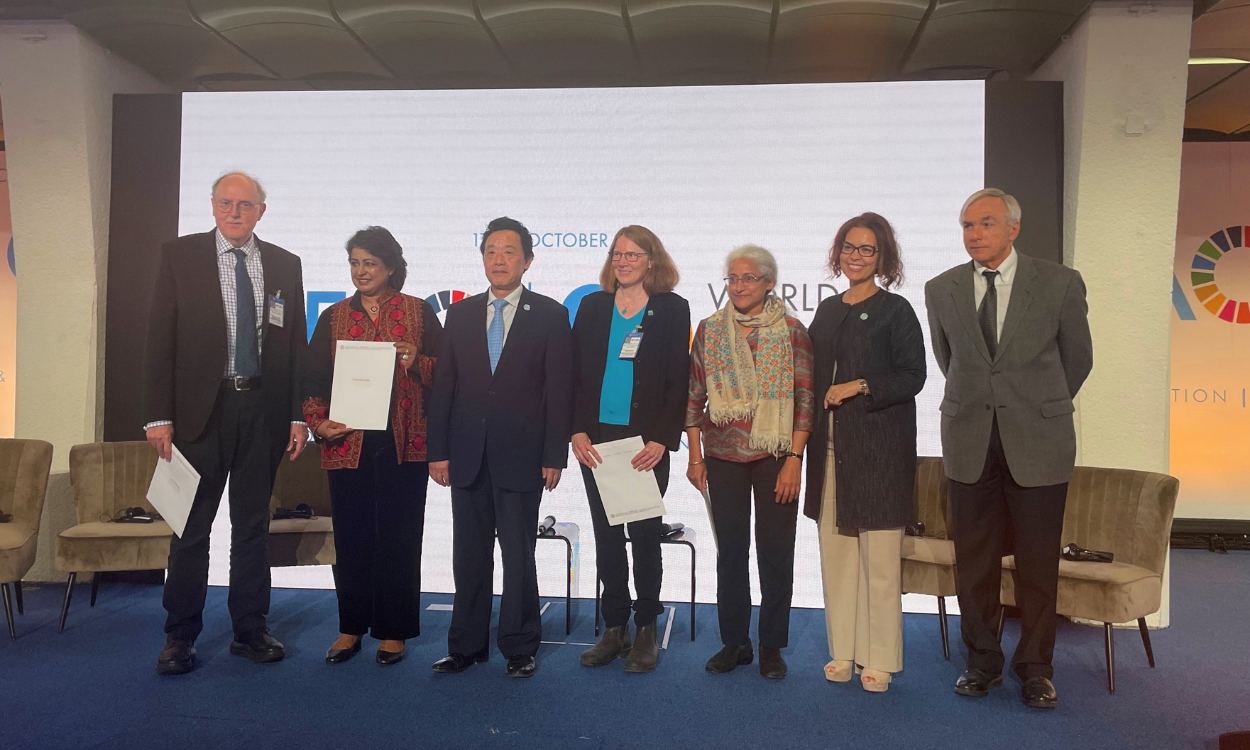SEED FUNDING JOINT PROGRAMMES
Egypt
Strengthening Sustainable and Resilient Food and Nutrition Systems in Egypt for SDG Acceleration




PROJECT TITLE | Strengthening Sustainable and Resilient Food and Nutrition Systems in Egypt for SDG Acceleration |
| Context | Egypt engaged actively in the 2021 Food Systems Summit process, convening a national dialogue and developing national pathways with recommended interventions for improving food security and nutrition by 2030. To enhance multi-sectorial coordination and spearhead the transformation process, the Government created a National Committee for Food and Nutrition Systems chaired by the Prime Minister and bringing together several ministries to coordinate joint actions. Strengthening coordination mechanisms, fostering multi-stakeholder partnerships, consolidating accountability structures, focusing on the availability of evidence, analysis, and data, are identified as key priorities to strengthen the food systems governance structure in Egypt. |
| PUNOs | WFP, FAO, UNICEF |
| Contribution to SDGs | SDG 2 Zero Hunger, SDG 3 Good Health and Well-being, 12 Responsible Consumption and Production. |
| Contribution to other SDG transitions | Climate, biodiversity, pollution |
| Duration | June 2024 – May 2025 |
| Expected financial leverage | $87,000 (PUNO co-financing) |
| Alignment with SG Call to Action | Policy integration; Food systems governance; Research, data, technology and innovation; Inclusive and participatory design; Private sector engagement |
| Outcomes | The JP contributes to strengthening policy and governance frameworks for food systems transformation and generating evidence and analysis on key dimensions of food systems to inform decision-making, supporting the work of the National Committee for Food and Nutrition Systems. The JP complements the government’s flagship program “Country Platform for the Nexus of Water, Food and Energy”, which provides a mechanism to mobilize climate finance and private investments. |
| Partners |
|
| Outputs |
|
Launch of the Hub’s Scientific Advisory Committee
The new Scientific Advisory Committee (SAC) supporting the Hub is officially launched at the 2022 World Food Forum in Rome, Italy.

The FAO Director-General offers appointment letters to scientists from the Hub's new Scientific Advisory Committee.
Science and innovation play a crucial role in accelerating transformations for healthier, more sustainable and resilient food systems. To fill this role, a new Scientific Advisory Committee (SAC) was recently established to work with the UN Food Systems Coordination Hub in support of country action.
The SAC was officially launched at the World Food Forum on 8 November 2022 at FAO Headquarters in Rome, Italy. Members of the committee received appointment letters from FAO Director-General QU Dongyu and later participated in a panel discussion with FAO Chief Scientist Ismahane Elouafi on “The power of science on transforming food systems.” Read a summary of the event from Hub Director, Stefanos Fotiou.
What is the role of the Scientific Advisory Committee (SAC)?
The SAC comprises 33 eminent scientists from around the world, dedicated to addressing systemic challenges that exist in transformation pathways through credible, evidence-based and science-driven solutions. Members were selected to represent the entire science ecosystem, including natural, social, economic and applied sciences, as well as sustainability science through an interdisciplinary and transdisciplinary approach.
Together, they will act as a broker of science and evidence, bringing forth their combined expertise to guide and support countries in the implementation of their national pathways. Support will be provided in the following ways:
- Enhancing the food systems knowledge and evidence base;
- Identifying scientific priority areas and emerging issues;
- Strengthening science- and evidence-based decision-making processes;
- Engaging the larger global scientific community and facilitating local or regional scientific networks;
- Improving science-based evidence communication; and
- Scaling up science-policy interface for informed policy-making.
Addressing the immense challenges facing our global food system will require an integrated and multidisciplinary approach. By harnessing evidence and expertise from across the scientific community, the SAC can help shift humanity towards healthier and more sustainable food systems.
